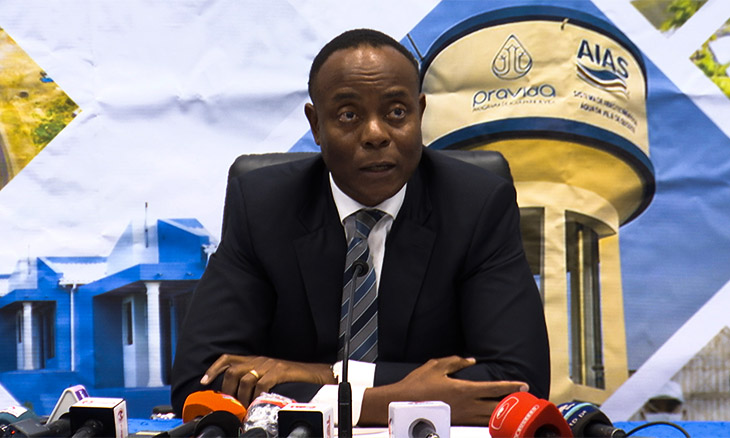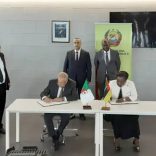IMF lending to Africa nears $70 billion since 2020, with further support expected
Mozambique: Government seeks more private investment in water supply – AIM report

Photo: O Pais
The Mozambican government’s Water Supply Investment and Assets Fund (FIPAG) intends to decentralise the management and operation of public water systems through greater involvement of the private sector.
Speaking at a Maputo press conference on Monday, the Minister of Public Works, Joao Machatine, said “We believe that by the end of the second quarter of 2022 the conditions will have been created for the entry of the private sector into commercial water supply companies.”
The need to expand management to private partners arises from the Government’s goal of providing clean water to 80 per cent of the urban population (an estimated 5.1 million people) by 2024. To reach this target will require 941 million dollars, a sum which FIPAG cannot raise on its own.
Hence the proposal to set up what will be known as “FIPAG Regional Commercial Companies”.
Machatine was optimistic that “with the entry of the private sector we shall quickly be able to meet the targets. The partnership is not exclusively financial, but also involves obtaining know-how from the private sector”.
The proposal has already been approved by the Council of Ministers (Cabinet), and now FIPAG must be reorganised to set up the regional commercial companies. There will be four of these commercial companies, set up in the northern, central and southern provinces and in the Greater Maputo Metropolitan Area.
The first significant involvement of the private sector came with the formation of the Maputo Regional Water Company some 15 years ago. This model will now be extended to the rest of the country.
“Throughout this period, lessons were learnt which will enable us to move steadily in the creation of commercial companies in other regions”, said Machatine.
Initially, the shares in the companies will be 100 per cent owned by FIPAG, but FIPAG will then sell up to 49 per cent of the shares in each company to private partners.
“We must guarantee that each company has strict and rigorous management, and to ensure this the partners must be selected carefully”, said the Minister. The companies, he added, must be listed on the Mozambique Stock Exchange.
This approach, Machatine said, has been successfully implemented in counties such as South Africa, Uganda and Rwanda.
By 2019, the government had secured about 1.1 billion US dollars in funding, which enabled an increase in the supply of clean water from 1.5 million consumers to nearly 3.9 million. consumers. 941 million dollars are needed by 2024 to boost water coverage to 80 per cent of the urban population, and about 1.2 billion dollars by 2030 for universal coverage of the urban areas.













Leave a Reply
Be the First to Comment!
You must be logged in to post a comment.
You must be logged in to post a comment.